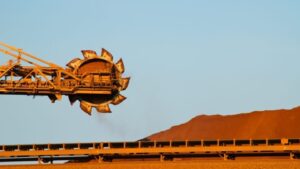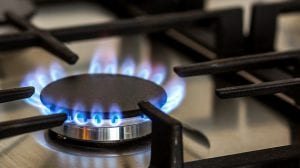The NSW government has copped criticism from gas producers and environmental groups alike for a plan to dramatically reduce the amount of land available for gas exploration but which preserves access to areas already earmarked for massive new gas developments.
On Wednesday, the NSW government released its new ‘Future of Gas Statement‘ that it claims will provide certainty to both regional communities concerned by the threat of new gas exploration and gas companies looking to tap into surging domestic and international gas prices.
The statement, released by NSW deputy premier John Barilaro and energy minister Matt Kean, said that a significant proportion of “zombie” Petroleum Exploration Licences would effectively be cancelled out by ruling out gas production from regions covered by the licence.
These “zombie” licences granted to gas companies currently allow for gas exploration for a significant portion of North-west New South Wales but have gone unused. A number of farming groups told the NSW government during consultation on the strategy that they had been left in an effective limbo, not knowing whether the licences could be activated at some point in the future.
The ministers said the plan to cancel out these zombie licences effectively would see the amount of land available for gas exploration reduced by 77 per cent. However, currently active licences and licences relating to the Narrabri gas project would remain valid.
The statement has sought to balance the needs of both sides of the gas debate: gas companies that want to expand production in the state; and environment groups that want gas extraction phased out. In presenting this balanced statement, the NSW government has copped criticism from both.
“Supporting gas production in and around the Narrabri region and investment in gas-related infrastructure will help to create thousands of jobs, strengthen local economies and drive the state’s recovery from COVID-19,” Barilaro said.

Kean, who has overseen the NSW government’s commitments to an ambitious plan for investment in clean energy projects – including plans for the creation of three dedicated renewable energy zones – said that gas would still be “vital” to the continued growth of the state’s economy.
“Gas is an essential source of energy to manufacture products such as fertiliser, and heavy construction materials,” Kean said
“The NSW government is determined to set a clear policy framework to secure supply and put downward pressure on prices.”
The announcement has been criticised by both sides, with environment groups claiming the measures do not go far enough to limit the expansion of fossil fuel extraction in the state, while gas companies have lamented the loss of licences and the opportunity to exploit the licences previously granted.
The Lock the Gate Alliance described the Future of Gas Statement as a “betrayal” for farmers, having re-approved petroleum exploration licences in Narrabri and the Liverpool Plains.
“If the government had been consistent, we would be celebrating. Communities in Coonamble, Gilgandra, Moree and the Upper Hunter are finally spared from the spectre of coal seam gas, and the decision not to proceed with gas exploitation in the Far West is very welcome,” Lock the Gate Alliance spokesperson Georgina Woods said.
“Promises to seek alternatives to gas are welcome, but the Deputy Premier’s decision to expand coal seam gas is at odds with New South Wales’ commitment to carbon neutrality and makes the Liverpool Plains and Namoi Valley a sacrifice zone for the double whammy of Santos’s coal seam gas damage and the legacy of climate change.”
Santos – which will be the beneficiary of a special carve-out in the NSW government’s plan that will protect exploration licences relating to the controversial Narrabri gas projects from cancellation –said it was “disappointed” to see so many licences set to be cancelled out.
“With pipelines often full during periods of peak demand, there is no physical pathway to get more gas from Queensland into New South Wales and so the need for projects like Narrabri has never been more important for NSW,” Santos managing director Kevin Gallagher said in a statement.
“The Narrabri Gas Project was approved almost a year ago, but we are still waiting for the outcome of an appeal against the approval.
“The Narrabri community is looking forward to the jobs, business opportunities and regional development that the project would bring, and NSW gas customers are looking forward to having more reliable and more affordable gas from Narrabri.
“Santos is disappointed that the NSW government sought to extinguish further areas with no regard to the investment that has already been made,” the company added in a statement.
Last year, Santos’ Narrabri gas project was granted planning approval by the NSW Independent Planning Commission, despite a wide range of objections from community and environmental groups.
Analysis suggests the project could wipe out a significant proportion of emissions reductions being achieved through investments in new clean energy projects, and questions have been raised about whether the project would actually help to lower domestic gas prices, given the high estimated production costs.
Over the life of the project, the Narrabri gas fields are expected to contribute almost 130 million tonnes to Australia’s greenhouse gas emissions, and a legal challenge to the project’s planning approvals is currently being considered by the NSW Land and Environment Court.








